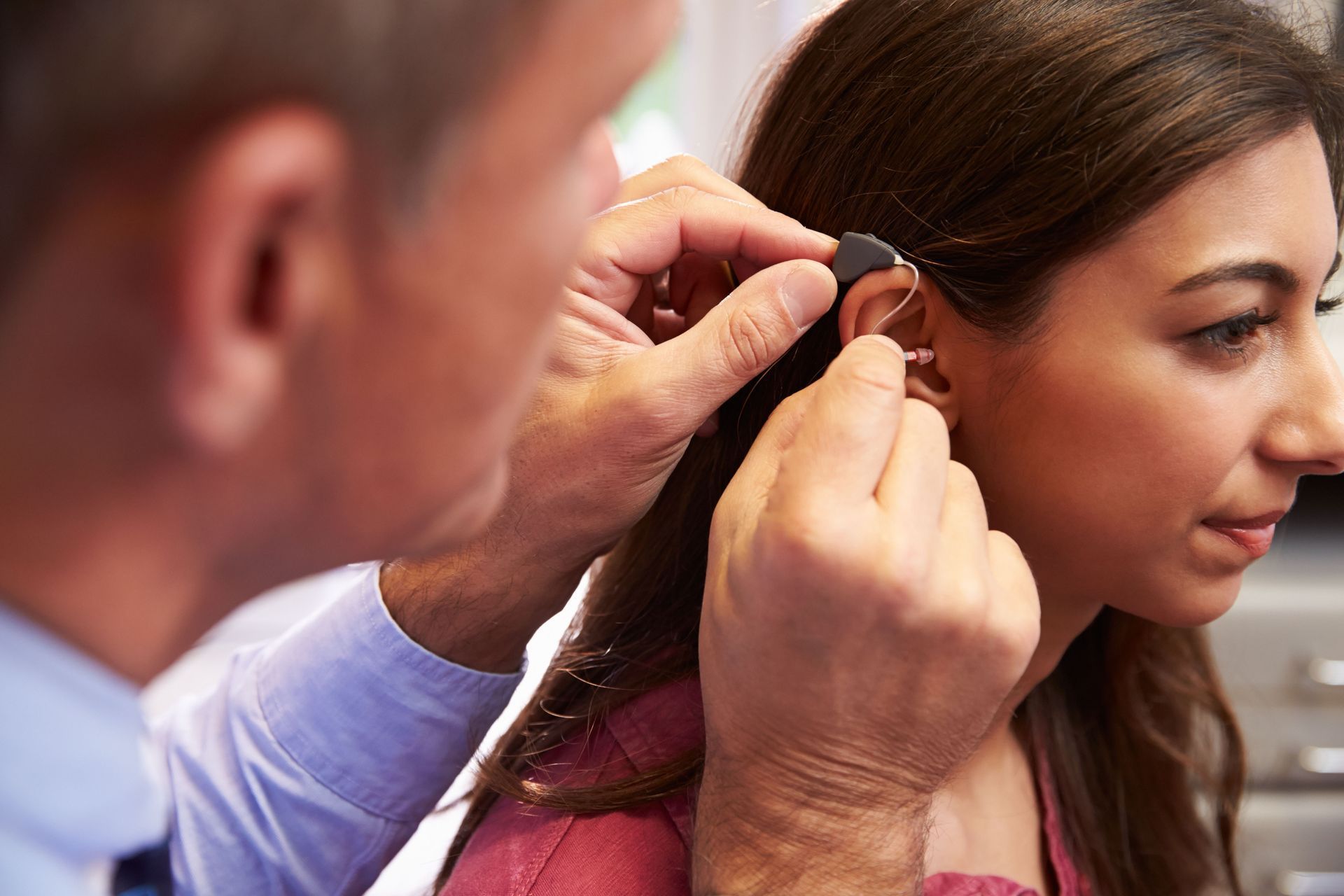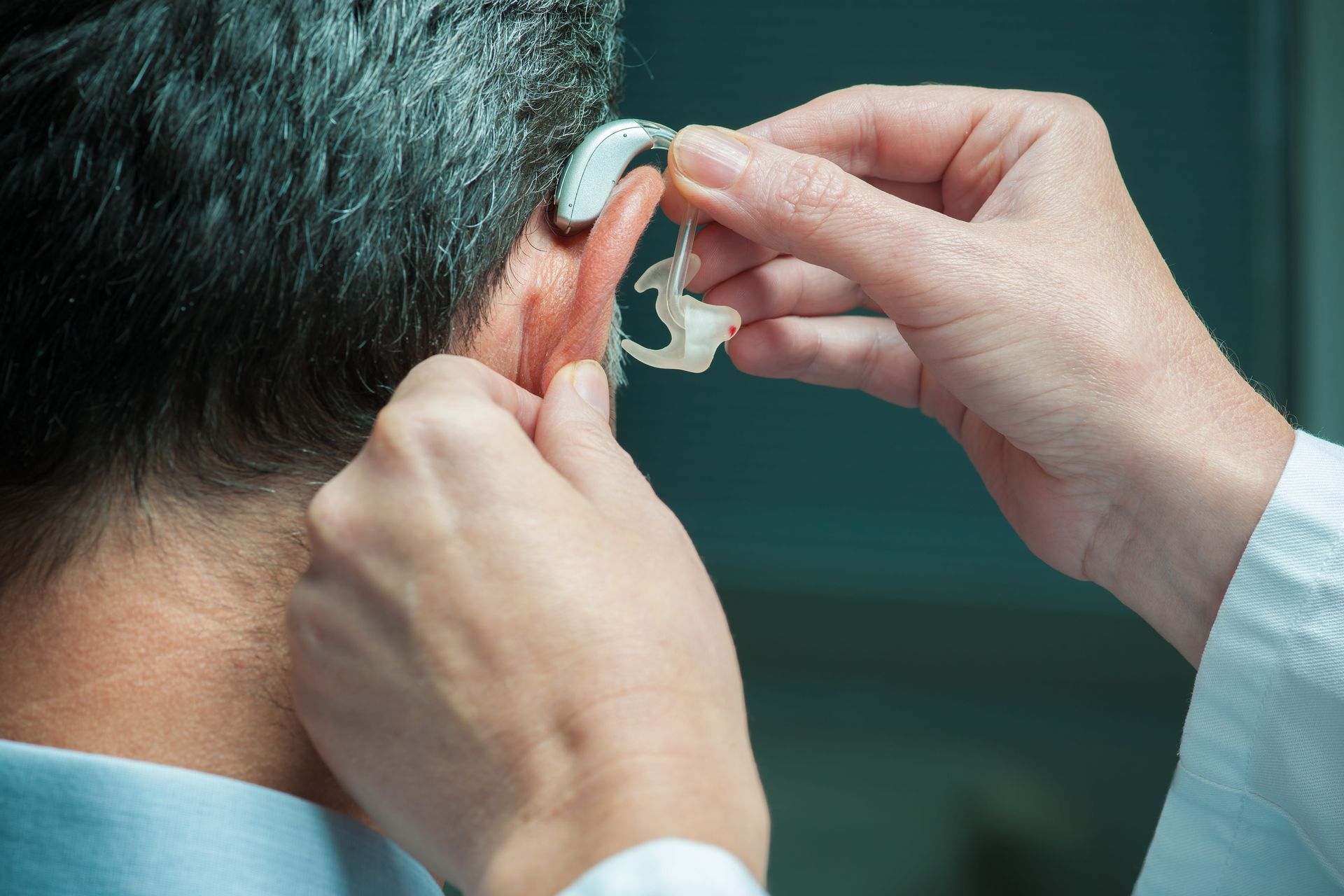October 20, 2025
Hearing aids play a vital role in the lives of millions of people, helping them navigate social interactions, work responsibilities, and everyday life with confidence. These devices are more than technological tools—they're essential companions that enable users to engage fully with the world. When hearing aids function optimally, they allow individuals to participate in conversations, appreciate music, follow media, and enjoy social gatherings without stress. However, like all electronic devices, hearing aids require regular maintenance and occasional hearing aid repairs. Ignoring even minor issues can lead to degraded performance, communication challenges, and frustration. Timely hearing aid repairs aren't merely a convenience—they're essential for maintaining hearing performance, preventing further damage, and supporting overall well-being. This article explores the importance of prompt hearing aid repairs and offers insights into how they contribute to both auditory and psychosocial health.
Enhance Communication Abilities
Communication is a fundamental human need, and hearing aids are central to enabling effective communication for individuals with hearing loss. Even minor impairments in a hearing aid’s functionality can drastically affect a user’s ability to comprehend speech, especially in environments with background noise. For instance, a partially blocked microphone or a failing receiver can cause sound to become muffled or distorted. This may result in misunderstandings during conversations, whether at home, at work, or in social settings. Over time, repeated communication difficulties may discourage users from participating in discussions, attending meetings, or engaging in leisure activities that involve auditory cues.
Beyond day-to-day conversations, hearing aids support cognitive processing by helping the brain accurately interpret sounds. Without clear auditory input, the brain must work harder to fill in missing information, which can lead to fatigue, decreased concentration, and reduced comprehension. Prompt hearing aid repairs restore the clarity and accuracy of sound signals, helping users maintain normal communication abilities and cognitive efficiency. Moreover, consistent device performance fosters confidence in social interactions, enabling users to express themselves clearly and remain engaged in professional and personal relationships.
Prevent Further Device Damage
Delaying hearing aid repairs can create a cascade of problems that may irreversibly damage a hearing aid. Minor issues, such as a loose battery compartment, clogged microphones, or moisture accumulation, are relatively easy to fix if addressed promptly. However, when these problems persist, they can escalate into significant malfunctions that compromise internal components. For example, moisture from sweat or environmental exposure can corrode electronic circuitry, while debris or earwax accumulation can damage delicate receivers and microphones. Such damage often requires extensive hearing aid repairs or, in the worst cases, complete device replacement, which can be prohibitively expensive.
Preventive maintenance and timely repair interventions are critical for avoiding these complications. Audiologists often recommend regular checkups and cleaning sessions, which allow small issues to be identified and resolved before they cause extensive damage. By addressing problems early, users extend the lifespan of their hearing aids, reduce the likelihood of unexpected failures, and ensure reliable performance in all listening environments.
Protect Your Hearing Health
Malfunctioning hearing aids can have consequences that extend beyond impaired communication. Improperly functioning devices may produce distorted or uneven sound levels, which can strain the auditory system. Over time, exposure to irregular sound amplification can contribute to further hearing loss or exacerbate preexisting conditions. Users may find themselves struggling to distinguish between background noise and important auditory cues, increasing cognitive load and fatigue.
The cognitive strain of interpreting distorted sounds can lead to headaches, stress, and difficulty focusing, particularly in professional or learning environments where accurate auditory processing is essential. In some cases, extended use of malfunctioning devices can increase the risk of auditory damage or sensitivity issues. According to the National Institutes of Health, one in eight people in the U.S., which is approximately 30 million individuals, aged 12 or older, has hearing loss in both ears. For these individuals, timely repair and maintenance are critical to protecting both hearing and overall health.
Improve Psychosocial Well-Being
The psychosocial impact of hearing aid malfunction is often underestimated. Frustration with devices that don't perform as expected can lead to feelings of helplessness, isolation, and even embarrassment. Users may withdraw from social activities, avoid conversations, and limit participation in group events to avoid the stress associated with miscommunication. Over time, this self-imposed isolation can contribute to depression, anxiety, and reduced self-esteem. Addressing these issues promptly can help prevent long-term emotional challenges and maintain a sense of personal connection and confidence.
Timely hearing aid repairs help users regain confidence and independence, allowing them to participate fully in social, professional, and recreational settings. A functional hearing aid not only restores auditory performance but also reinforces emotional well-being by enabling meaningful engagement with family, friends, and colleagues. For older adults, maintaining active social connections through reliable hearing aids can reduce the risk of loneliness and cognitive decline. By ensuring hearing aids work properly, users can enjoy richer interactions and a greater sense of inclusion in daily life.
Reduce Financial Burdens
Delaying hearing aid repairs can have significant financial consequences. Minor issues, such as a worn-out microphone or loose battery compartment, may be inexpensive to fix initially. However, neglecting these issues can lead to severe device malfunctions that necessitate full replacement. High-quality hearing aids often represent a substantial investment, and replacing them prematurely can place a heavy burden on personal finances.
In addition to repair or replacement costs, impaired hearing can impact professional opportunities and career growth. Difficulty understanding conversations or following workplace discussions can limit productivity, performance, and networking opportunities, indirectly affecting income potential. Engaging in regular maintenance and prompt hearing aid repairs helps users manage costs over time, preserving both the financial and functional value of their hearing aids. Regular checkups, professional cleanings, and early repair interventions can prevent the accumulation of costly issues and avoid the need for emergency replacements.
Understand Repair Costs and Timeframes
Repair costs and timelines vary depending on the type, model, and complexity of the hearing aid, as well as the nature of the problem. Simple fixes, such as battery replacement, wax removal, or minor adjustments, can often be completed quickly and affordably. More complex hearing aid repairs, including circuit board replacements, microphone adjustments, or receiver replacements, may require specialized components and longer service times. Consulting with a qualified audiologist provides users with a clear estimate of repair costs and expected timelines, enabling informed decision-making and planning.
Transparent communication with audiologists ensures that users understand the options available, from repairing minor faults to upgrading or replacing devices when necessary. Investing in timely repairs is often more economical than replacing an entire hearing aid, and it minimizes disruption to daily life. Additionally, many audiologists offer maintenance programs, extended warranties, or service plans that streamline hearing aid repairs, reduce costs, and provide peace of mind. By understanding repair costs, users can ensure uninterrupted hearing performance and avoid unexpected financial burdens.
Timely hearing aid repairs are essential for preserving optimal auditory performance, user satisfaction, and overall well-being. Addressing issues promptly ensures that devices function effectively, enhancing communication, preventing further damage, and reducing potential health risks. Professional audiologists play a critical role in guiding users through personalized care, from initial device fitting to ongoing maintenance and hearing aid repairs. By collaborating with experts, adopting preventive practices, and responding quickly to malfunctions, users can enjoy reliable hearing aids for years to come. Prioritizing timely hearing aid repairs isn't only a practical necessity—it's a vital step in maintaining independence, social engagement, and mental and emotional health. Reach out to Chappell Hearing Care Centers to learn more today.










